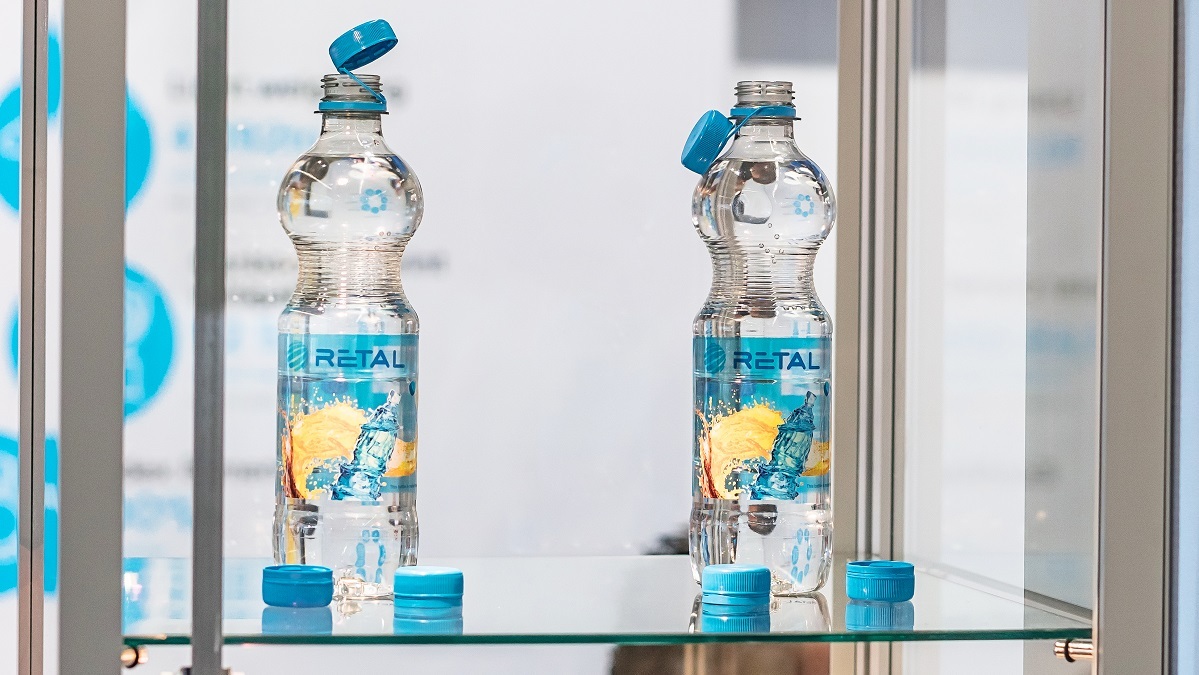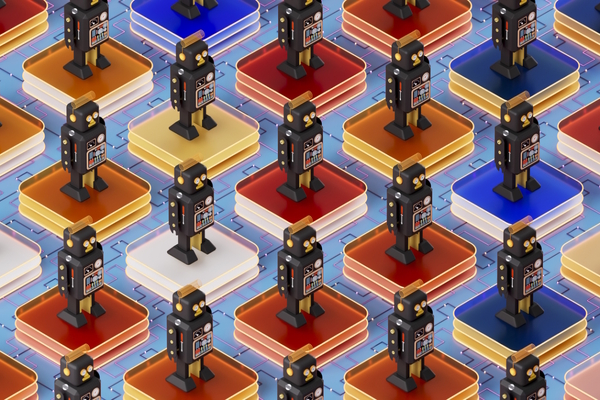How the circular economy is revolutionising the plastics packaging industry
Sponsored by Retal
Emmanuel Duffaut, Sustainability Director, RETAL, Group level, Viktorija Jureviciute, General Manager, RETAL Baltic, Gediminas Paulauskas, Member of the Board, NEO Group
Plastic packaging has a sustainable future. Delivering effective, circular packaging solutions that are both convenient for consumers and don’t negatively impact the planet is a challenge packaging manufacturers and global food and beverage brands are stepping up to.
But plastic packaging has a terrible public perception. Hashtags like #plasticfree and #noplastic abound on social media. The plastic industry is facing both the emotional issue of consumers influencing brands to move away from plastic, and the technical issue of insufficient infrastructure to collect, sort and recycle plastic waste.
Yet while alternative packaging materials may be more socially acceptable, are they really “better”? Will the current popularity of alternatives to plastic be short-lived, thanks to their depletion of natural resources and negative environmental impact, including larger greenhouse gas emissions?
Global Forest Watch reports that “40 per cent of global deforestation is commodity driven”, with paper packaging a contributing factor. From 2001 to 2018, 361 million hectares of trees were destroyed, equivalent to a 9 per cent reduction of the world’s forests [1]. Over the same period, paper consumption increased by 26 per cent, with 55 per cent of its volume attributed to packaging [2].
Glass packaging production also negatively impacts on the environment. The proportion of silica – the mineral known as quartz sand – in the manufacture of glass is about 70 per cent. Studies on the natural reserves of silica indicate that extraction and high consumption of this mineral damages the environment and leads to the depletion of its reserves. Moreover, the high melting point of the material in glass packaging production is a source of significant CO2 emissions, and impacts negatively on climate change.
PET packaging is the most popular choice for mineral water, still and carbonated drinks, beer, dairy products, and vegetable oils. PET is also widely used in medicine as well as cosmetics and household chemicals. It is cheap, light, easily moulded and branded, non-breakable, has high barrier properties and does not impair the product’s quality. Thanks to these advantages, the consumption of plastic packaging continues to grow. According to a Smithers report, global plastic packaging consumption was projected at 58.6 million tonnes in 2019 and is forecast to grow during 2019-24 at an annual rate of 3.5 per cent, to 69.8 million tonnes [3]. According to Euromonitor International research, the total share of plastic packaging is about 60 per cent of the entire packaging market.
While studies show that consumers prefer this type of packaging, it is necessary to find multifaceted solutions to show that plastic can be both convenient and sustainable. In most European countries, PET is already widely recyclable in standard collections, giving it a valuable second life as recycled PET, or rPET.
 Demographic and Lifestyle Trends Driving Rigid Plastic Packaging Market Growth
Demographic and Lifestyle Trends Driving Rigid Plastic Packaging Market Growth
Global PET and rPET packaging producer RETAL* has more than 20-years of expertise in plastics manufacturing, and is increasingly active in circular economy initiatives and the promotion of public awareness of used PET packaging. Anatoly Martynov, President of RETAL, asserts that how we manage plastic packaging beyond its first use underpins everything and impacts everyone. Insufficient understanding by consumers of their responsibilities for the disposal of used packaging and poor collection infrastructure can both lead to serious problems of environmental pollution. In addition, the long-term payback period of recycling projects is the reason for the insufficient development of the recycling industry.
The goal for every PET packaging company is to minimise its negative environmental impact. RETAL works closely with its global customers to ensure that its packaging meets the strictest criteria. The company is also active in various sustainability-driven plastic packaging value chain organisations, including PETcore, the Circular Plastics Alliance and Waste Free Oceans.
On the technical side, RETAL has developed the capacity and expertise to produce preforms from up to 100 per cent recycled PET, and continuously works towards creating innovative, patented “design to recycle” solutions that use lightweighting and tethered closures.
NEO GROUP, part of RETAL Industries, is also actively involved in the implementation of the circular economy. One of its main projects is the launch of a production line that will produce PET resin containing rPET. The first phase is planned to be completed in 2020. With consistent investment in additional lines planned over the next five years, the recycling of used PET bottles at NEO Group is expected to reach 4.5 billion units per year. Thanks to the new lines, a significant share of the European market’s demand for recycled content will be produced by NEO.
Since 2015, NEO GROUP** has participated in the Horizon 2020 program, which promotes greater resource efficiency and reduced environmental impact for waste by developing beneficial workflow for recycled materials, industrial by-products and by using rPET. Since 2018, programme participants, including NEO GROUP, have been actively working on chemical recycling. This technology will boost the ability to recycle “contaminated” PET, which cannot currently be recycled using mechanical methods. Practically 100 per cent of used PET can be chemically recycled, and it can be recycled unlimited times. This is a revolutionary technology that truly supports the circular economy.
All these factors come together to illustrate how RETAL is active in closing the loop, contributing to environmentally responsible solutions and meeting the requirements of the EU Single-Use Plastics Directive.
While no single business can effectively tackle climate change or solve the problem of environmental pollution by itself, a joined-up approach to plastics circular economy that takes into consideration all the relevant stakeholders will allow PET packaging to realise its true value, and change its negative perception to a positive potential.
For more information, visit Retal’s website here.
* RETAL develops and manufactures high-quality polyethylene terephthalate (PET) packaging solutions, including preforms, closures, containers and films. Globally active, RETAL supplies customers in over 60 countries worldwide. Strongly focused on quality management standards, RETAL is ISO 9001, ISO 14001 and ISO 22000 accredited. Parent company RETAL Industries Ltd is headquartered in Limassol, Cyprus.
** NEO Group is a PET manufacturer for food and beverage packaging. With the introduction of its third production line in 2018, the company has become one of the largest PET manufacturers in Europe. NEO GROUP expanded into the chemical recycling of PET waste in 2011 in order to provide a complete, responsible service to its clients, with NEOPOLYOL also popular for use in the construction industry. NEO GROUP serves around 300 companies in over 30 countries.
[1] Global Forest Watch / Dashboard
[2] The State Of The Global Paper Industry
[3] Demographic and Lifestyle Trends Driving Rigid Plastic Packaging Market Growth

Business Reporter Team
Most Viewed
Winston House, 3rd Floor, Units 306-309, 2-4 Dollis Park, London, N3 1HF
23-29 Hendon Lane, London, N3 1RT
020 8349 4363
© 2025, Lyonsdown Limited. Business Reporter® is a registered trademark of Lyonsdown Ltd. VAT registration number: 830519543





